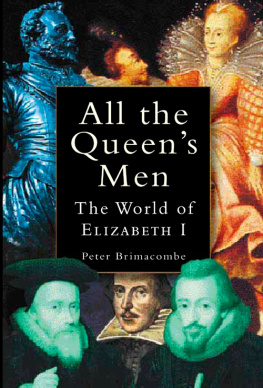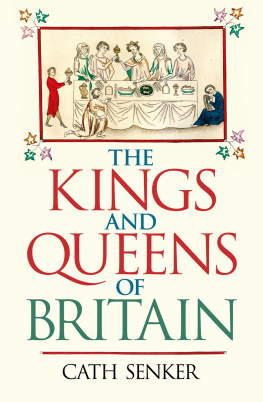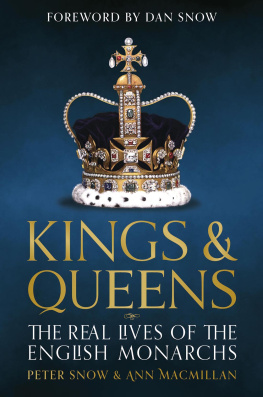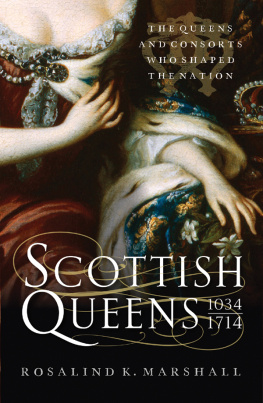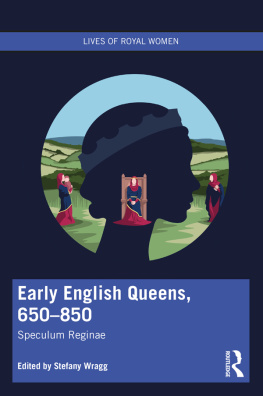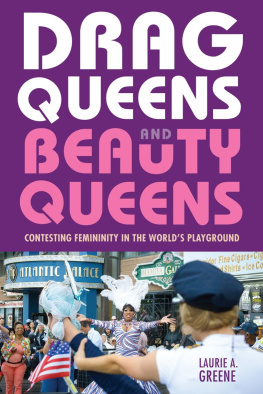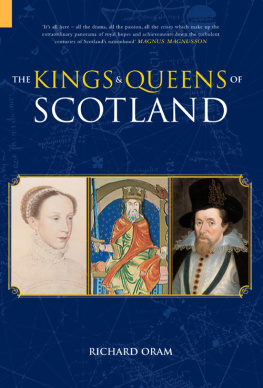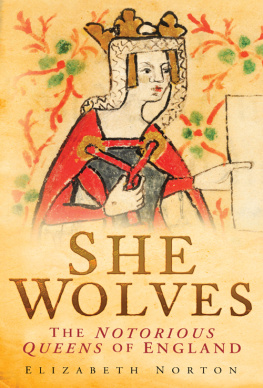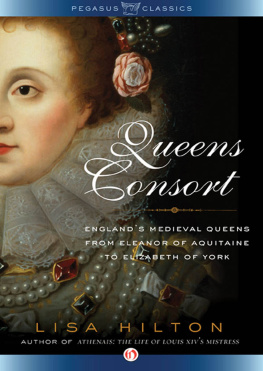Peter Brimacombe - All the Queens Men
Here you can read online Peter Brimacombe - All the Queens Men full text of the book (entire story) in english for free. Download pdf and epub, get meaning, cover and reviews about this ebook. year: 2002, publisher: Sutton Publishing Ltd, genre: Non-fiction. Description of the work, (preface) as well as reviews are available. Best literature library LitArk.com created for fans of good reading and offers a wide selection of genres:
Romance novel
Science fiction
Adventure
Detective
Science
History
Home and family
Prose
Art
Politics
Computer
Non-fiction
Religion
Business
Children
Humor
Choose a favorite category and find really read worthwhile books. Enjoy immersion in the world of imagination, feel the emotions of the characters or learn something new for yourself, make an fascinating discovery.
- Book:All the Queens Men
- Author:
- Publisher:Sutton Publishing Ltd
- Genre:
- Year:2002
- Rating:5 / 5
- Favourites:Add to favourites
- Your mark:
- 100
- 1
- 2
- 3
- 4
- 5
All the Queens Men: summary, description and annotation
We offer to read an annotation, description, summary or preface (depends on what the author of the book "All the Queens Men" wrote himself). If you haven't found the necessary information about the book — write in the comments, we will try to find it.
All the Queens Men — read online for free the complete book (whole text) full work
Below is the text of the book, divided by pages. System saving the place of the last page read, allows you to conveniently read the book "All the Queens Men" online for free, without having to search again every time where you left off. Put a bookmark, and you can go to the page where you finished reading at any time.
Font size:
Interval:
Bookmark:
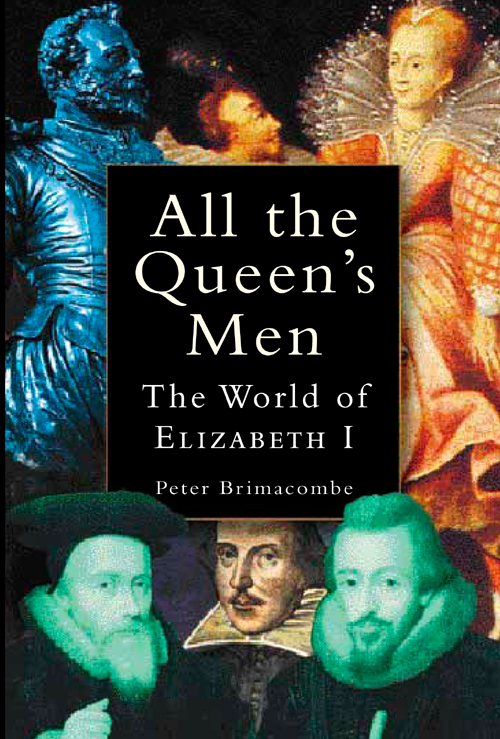
Queens
Men
ELIZABETH I
Peter Brimacombe

First published in 2000 by Sutton Publishing
This edition first published in 2003
The History Press
The Mill, Brimscombe Port
Stroud, Gloucestershire, GL5 2QG
www.thehistorypress.co.uk
This ebook edition first published in 2012
All rights reserved
Peter Brimacombe, 2000, 2003, 2012
The right of Peter Brimacombe, to be identified as the Author of this work has been asserted in accordance with the Copyrights, Designs and Patents Act 1988.
This ebook is copyright material and must not be copied, reproduced, transferred, distributed, leased, licensed or publicly performed or used in any way except as specifically permitted in writing by the publishers, as allowed under the terms and conditions under which it was purchased or as strictly permitted by applicable copyright law. Any unauthorised distribution or use of this text may be a direct infringement of the authors and publishers rights, and those responsible may be liable in law accordingly.
EPUB ISBN 978 0 7524 7404 5
MOBI ISBN 978 0 7524 7403 8
Original typesetting by The History Press
W hile I was living in Plymouth several years ago, A.L. Rowse came to lunch, thereby introducing me to the world of Queen Elizabeth I. It is with considerable trepidation that I stumble in the footsteps of this acknowledged and much-regarded authority on the Elizabethan age fortunately I have received considerable help.
I would like to thank the archivists of Burghley House, Hatfield House, Longleat, Sudeley Castle and Woburn Abbey together with Bonnie Vernon at Penshurst Place. My gratitude to the staff of the Bodleian Library, Oxford, Maritime Studies Library and West Devon Records Office, Plymouth, the Public Record Office, Kew, and Trinity College Library, Cambridge. Also to Crispin Gill, Alan Cotton and Phil Edwards, the assistant librarian in Devizes, Wiltshire.
I am particularly grateful to Dr John Adamson at Peterhouse, Cambridge, Professor Wallace MacCaffrey at Trinity Hall, Cambridge, Dr Pieter van der Merwe at the National Maritime Museum, Greenwich, Dr Robin Robbins at Wadham College, Oxford, Canon David Durston at Salisbury Cathedral, and Sir Roy Strong for kindly giving me so much of their time and knowledge.
Finally and most of all to my wife Jennie, without whose unflagging assistance there would be no book.
E lizabeth I was the last English monarch truly to rule the nation subsequently only Queen Victoria possessed the same majestic stature, yet by then royal power was no longer absolute but subject to the wishes of Parliament. Elizabeth had inherited a weak and divided kingdom yet relentlessly fashioned it into a major world power, having decisively defeated the mightiest invasion fleet ever to approach our shores. Her relationships with the key men in the kingdom, both in war and peace, were vital to the success of her reign.
The Queen coupled a shrewd judgement of human nature with the unerring ability to choose and motivate men: during her long and glorious reign, she surrounded herself with the ablest, most energetic and fearless minds in the kingdom. As with the majority of women who achieve power, her retinue remained entirely male the Court of Queen Elizabeth I held no place for women except for their wit and beauty. The only man she did not choose was a husband, although there was certainly no shortage of suitors.
Elizabeths England abounded with eminent statesmen, while wave after wave of sea captains became her swordbearers. Her charismatic reign produced brilliant scholars and creative talent, among them the worlds foremost playwright. Elizabeth was devoutly religious and embraced the New Learning with fanatical zeal. She inspired magnificent architecture, while her sea captains sailed great oceans to discover new shores and found a mighty overseas empire. Centre stage in these heady days of new ideas and new horizons was the Royal Court, a colourful kaleidoscope of glittering courtiers and important foreign dignitaries, all trying to impress, all jostling for her favours All the Queens Men.
T he Battle of Bosworth ended with Richard III a bloodstained corpse, his army completely destroyed. The long-running Wars of the Roses finally over, Henry Tudor was acclaimed King Henry VII of all England, marking the beginning of the Tudor age. Yet while 1485 is generally considered to signal the end of the Middle Ages, the Tudor monarchs who followed that decisive military encounter, continued to reign with the blissful assurance of the divine right of kings, in precisely the same manner as their medieval forebears. Elizabeth, the last and arguably greatest of the Tudor rulers, was no exception: divine right was a fundamental concept in which she wholeheartedly believed. She was chosen by God.
Henry Tudor, born at Pembroke Castle on the Welsh coast, was twenty-eight years old when he became king. His claim to the throne was questionable but in those days kingdoms could be won in combat and Henry had eliminated the opposition in time-honoured style when his heavily outnumbered Lancastrian army triumphed amid the rolling Leicestershire countryside outside the small town of Market Bosworth. Now that he was King, Henry was greatly determined to see a conclusion to the long-running civil wars between the Yorkists and Lancastrians which had grievously disrupted the kingdom for so many years. We will unite the white rose and the red, declaims Henry triumphantly in the last act of William Shakespeares great historical drama Richard III, written just over a century later. So it was to be, for no Yorkist head of any significance rose above the parapet ever again and peace was finally sealed when Henry married Elizabeth of York, the daughter of Edward IV, Richards elder brother and the last head of the House of York.
The two dozen years of Henry VIIs reign that followed were understandably almost entirely taken up with regaining royal authority, re-establishing much-needed law and order throughout the kingdom and ensuring that the hard-earned peace was maintained in the face of potential internal or external threat of renewed conflict. It was during this time that the great families which Henrys granddaughter, Elizabeth, was later to rely on so heavily came to prominence, such as the Cecils who found themselves on the winning side after Bosworth and benefited accordingly. Henry was necessarily preoccupied with internal domestic issues within the country while momentous events were occurring overseas that were to be of monumental consequence for England in the future. France had become unified after the French King Louis XI annexed the hitherto independent Dukedom of Burgundy following the death of Charles the Bold. The expulsion of the Moors from Granada in 1492 by King Ferdinand, followed by the Duke of Albas conquest of Navarre, finally brought political unity to Spain. These unconnected, yet highly significant occurrences created two new larger and potentially hostile nations to menace England, posing an almost continual military threat during the ensuing centuries. The map of Europe was in a state of flux even the Holy Roman Empire, a loose-knit group of states dating back to the Middle Ages and ruled by Emperor Maximilian I, was in relentless decline.
Meanwhile, the Renaissance and the Reformation were sweeping across the whole of continental Europe and a new age of discovery was pushing back the frontiers of the unknown world, pioneered by the epic voyages of that trio of Portuguese explorers, Diaz, Vasco da Gama and Magellan, and the Genoese Christopher Columbuss courageous journey across an uncharted Atlantic Ocean to the fringes of a hitherto unknown continent that later came to be known as the New World. Throughout this time England took virtually no part in these historic activities, but remained isolated on the margins of Europe.
Font size:
Interval:
Bookmark:
Similar books «All the Queens Men»
Look at similar books to All the Queens Men. We have selected literature similar in name and meaning in the hope of providing readers with more options to find new, interesting, not yet read works.
Discussion, reviews of the book All the Queens Men and just readers' own opinions. Leave your comments, write what you think about the work, its meaning or the main characters. Specify what exactly you liked and what you didn't like, and why you think so.

